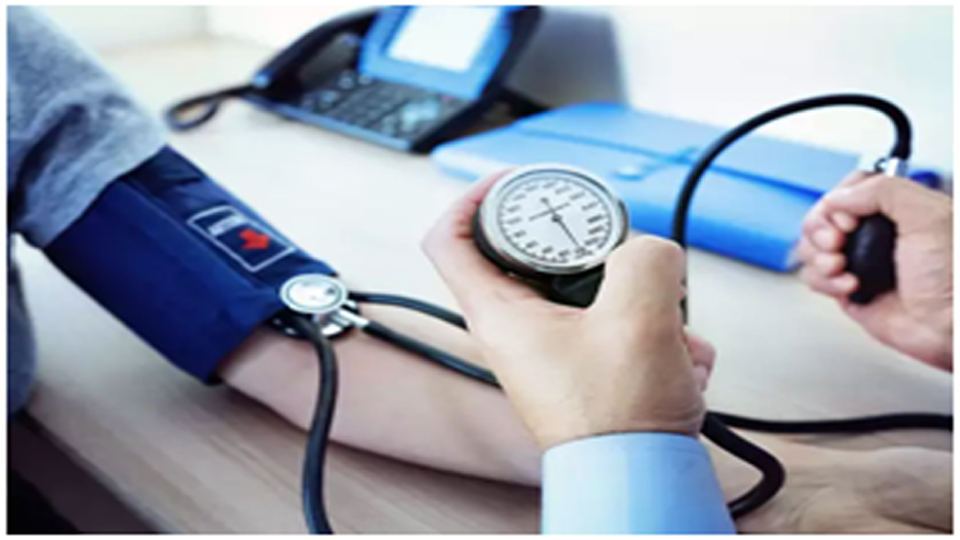Bolgs Detail

Hypertension
Pressure exerted by blood on the walls of the vessels when flowing through it is called as blood pressure. Blood pressure is measured as- the systolic blood pressure equals the pressure in the arteries as the heart contracts and the diastolic pressure is the pressure in the arteries as the heart relaxes.
Hypertension is elevated blood pressure in the arteries. Persistent systolic blood pressure from 130-139 mm Hg and diastolic blood pressure from 80-89 mm Hg is termed as Hypertension Stage 1and systolic blood pressure of 140 mm Hg or higher and diastolic blood pressure from 90 mm Hg or higher is termed as Hypertension Stage 2. Hypertension is a major risk factor for coronary artery disease, stroke, heart failure, chronic kidney disease, and dementia.
Hypertension is classified into primary (essential) hypertension and secondary hypertension. Primary hypertension happens due to nonspecific lifestyle and genetic factors. Lifestyle factors that are responsible for hypertension include excess salt intake in the diet, obesity, smoking, and excess alcohol use. Secondary Hypertension develops due to an identifiable cause, such as kidney disease, narrowing of the kidney arteries, an endocrine disorder, or the use of birth control pills.
Signs & Symptoms- Hypertension typically does not cause symptoms and hence it is called as a silent killer. Sometime hypertension causes headaches (particularly at the back of the head and in the morning), light headedness, vertigo, tinnitus or fainting. If untreated, hypertension can cause vision loss, kidney failure, Cardiac diseases and stroke (paralysis). Lifestyle changes and medications are advised to lower blood pressure. Lifestyle changes include decreased salt intake, physical exercise, weight loss and reducing alcohol intake. If lifestyle changes are not sufficient then blood pressure medications like diuretics, ACE inhibitors, beta blockers, angiotensin II receptor blockers, calcium channel blockers are used.
As per Ayurvedic science, hypertension is to be understood as the Prasara-Avastha which means spread of vitiated Doshas from their specific sites, specifically of Vyana Vata, Prana Vata, Sadhaka Pitta and Avalambaka Kapha along with Rakta in their disturbed states. The Avarana (occlusion of normal functioning) of Vata Dosha by Pitta and Kapha can be seen in the Rasa-Rakta Dhathus, which in turn hampers the functioning of the respective Srotas (micro-channels) of circulation.
Ayurvedic Treatment of Hypertension:
Avoiding etiological factors of disease is considered as the first line of management. Along with lifestyle modifications, appropriate Vata Anulomana (maintaining normal course of Vata) Tridoshahara (normalizing all Tridosha), and Rasa, Rakta Prasadakar (blood purifying), Medohara (reducing excess fat) Chikitsa may be adopted. Panchakarma treatments such as Virechana (medially induced purgation), Lekhana Basti (medicated enema), Shirodhara with medicated oils, Rakta mokshan (bloodletting) are useful in hypertension. Sarpagandha, Ashwagandha, Jatamansi, Brahmi, Shankhpushpi, Arjuna, Gokshur are commonly used herbs for prevention and control of Hypertension
Along with conventional medicines, Ayurvedic treatments (Panchakarma and internal medicines) may help in better control of blood pressure. Ayurvedic treatments may provide strength to cardiovascular system including heart and help in preventing long term complications of hypertension.
Many patients suffering from Hypertension have benefitted from customized Ayurvedic treatment devised by Dr. Kohli with improved control of Hypertension, reduction in the dosage of antihypertensive allopathic medication, prevention of progressive Hypertension and its complications.












